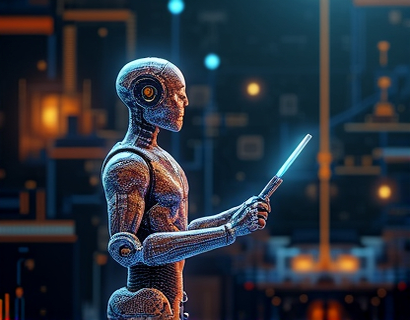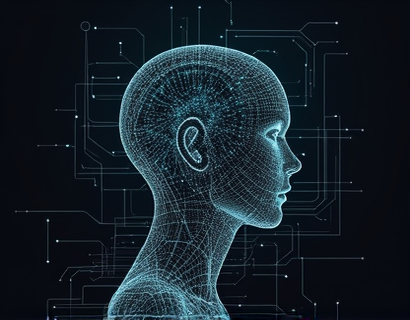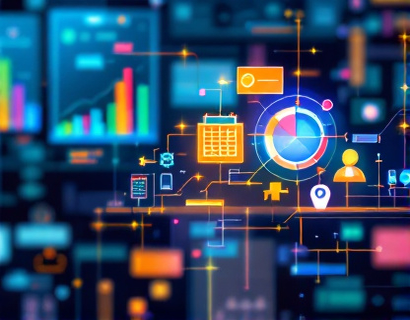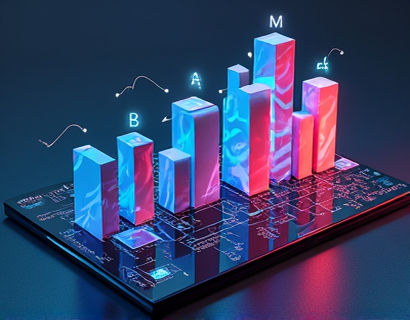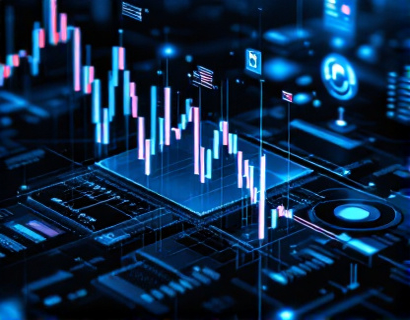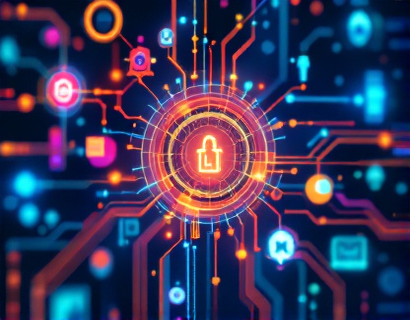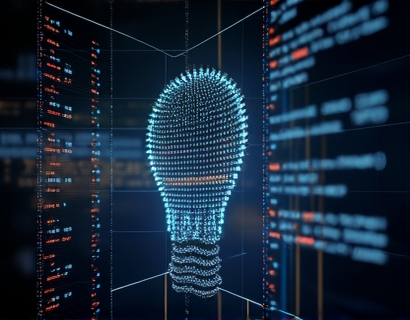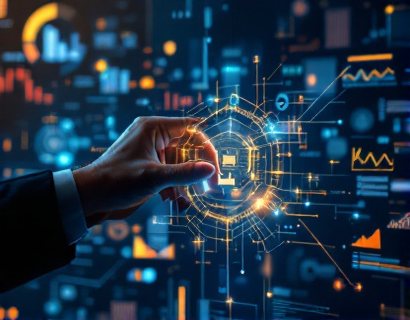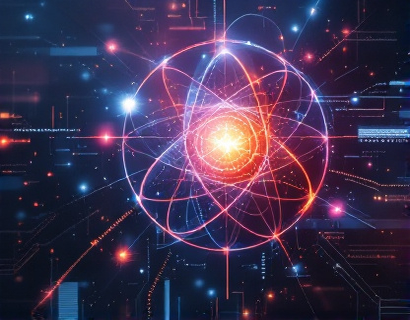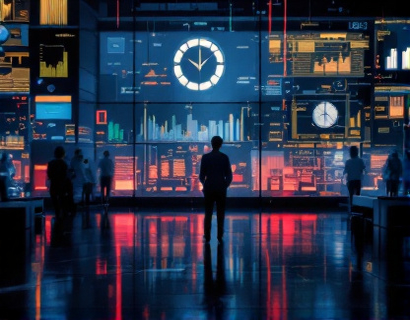Unlocking Advanced Digital Transformation: Leveraging AI and Crypto for Next-Gen Ecosystem Solutions
The digital landscape is undergoing a profound transformation, driven by the convergence of artificial intelligence (AI) and blockchain technology. This synergy, often referred to as BlockchainAI, is revolutionizing how businesses operate, enhancing efficiency, security, and innovation. In this article, we delve into the powerful combination of AI and cryptocurrency, exploring how these technologies can be harnessed to create robust and adaptive ecosystem solutions.
At the core of this transformation is the blockchain, a decentralized ledger that ensures transparency, immutability, and security. When paired with AI, blockchain can address some of the most pressing challenges in the digital world, from data privacy to operational inefficiencies. The integration of these technologies is not just a trend but a necessity for businesses aiming to stay competitive in the rapidly evolving digital ecosystem.
Enhancing Business Operations with Blockchain and AI
One of the primary benefits of combining blockchain and AI is the significant improvement in business operations. AI can process vast amounts of data at unprecedented speeds, identifying patterns and insights that humans might miss. When this data is stored on a blockchain, it ensures that the information is tamper-proof and accessible only to authorized parties. This combination can streamline supply chain management, financial transactions, and customer service processes.
For instance, in supply chain management, AI can predict demand, optimize inventory levels, and detect fraudulent activities. Blockchain ensures that all transactions are recorded in a secure and transparent manner, reducing the risk of errors and fraud. This results in a more efficient and reliable supply chain, benefiting both businesses and consumers.
Fostering Security in the Digital Age
Security is a paramount concern in the digital era, and the integration of blockchain and AI offers robust solutions. Traditional security measures often rely on centralized systems, which are vulnerable to cyber attacks. Blockchain's decentralized nature, combined with AI's advanced threat detection capabilities, creates a formidable defense mechanism.
AI can monitor network activities in real-time, identifying and mitigating threats before they cause significant damage. Blockchain ensures that all security logs and transactions are immutable, providing a clear audit trail. This dual approach not only enhances security but also builds trust among users and stakeholders.
Driving Innovation through BlockchainAI
The synergy of blockchain and AI is a catalyst for innovation across various industries. In finance, for example, smart contracts powered by AI can automate complex financial processes, reducing the need for intermediaries and lowering transaction costs. In healthcare, AI-driven analytics on blockchain can ensure the secure and privacy-preserving sharing of medical records, leading to better patient care and research outcomes.
Moreover, the creative industry can benefit from blockchainAI by ensuring the authenticity and ownership of digital assets. Artists and creators can use blockchain to prove ownership and monetize their work directly, while AI can help in generating new content and personalizing user experiences.
Building a Competitive Edge
For businesses looking to stay ahead in the digital race, embracing BlockchainAI is essential. The ability to leverage AI for data analysis and decision-making, combined with the security and transparency of blockchain, provides a significant competitive advantage. Companies that adopt these technologies can innovate faster, operate more efficiently, and build stronger relationships with their customers.
Moreover, the global shift towards decentralized systems and the increasing regulatory focus on data privacy make BlockchainAI a forward-thinking choice. Businesses that proactively integrate these technologies position themselves as leaders in their respective fields, attracting talent and investment.
Challenges and Considerations
While the potential of BlockchainAI is vast, there are challenges that need to be addressed. One of the primary concerns is the technical complexity involved in integrating these technologies. Businesses must invest in skilled personnel or partner with experts to navigate the implementation process effectively.
Another consideration is the regulatory landscape. As blockchain and AI continue to evolve, regulations are still catching up. Companies must stay informed about legal requirements and ensure compliance to avoid potential pitfalls. Additionally, the energy consumption associated with blockchain, particularly proof-of-work models, is a growing concern that needs to be addressed through more sustainable practices.
Case Studies and Real-World Applications
Several organizations have already begun to harness the power of BlockchainAI. For example, a leading logistics company implemented an AI-driven blockchain platform to track shipments in real-time, reducing delays and improving customer satisfaction. In the realm of finance, a major bank uses AI to analyze blockchain data for fraud detection, significantly lowering false positives and enhancing security.
In the healthcare sector, a hospital network deployed a blockchain-based system for storing patient records, with AI algorithms ensuring data integrity and privacy. This not only streamlined administrative processes but also improved patient outcomes by providing healthcare providers with accurate and timely information.
Future Prospects
The future of BlockchainAI is promising, with ongoing research and development pushing the boundaries of what is possible. As technology advances, we can expect more sophisticated AI models that can operate directly on blockchain networks, further enhancing efficiency and security. The emergence of interoperable blockchain platforms will also facilitate seamless integration across different ecosystems, fostering a more connected and intelligent digital world.
Moreover, the growing adoption of decentralized finance (DeFi) and non-fungible tokens (NFTs) indicates a broader acceptance and integration of blockchain technology in various sectors. AI will continue to play a crucial role in optimizing these decentralized systems, making them more user-friendly and accessible.
Conclusion
The convergence of AI and blockchain represents a new frontier in digital transformation, offering unparalleled opportunities for businesses to enhance operations, secure data, and innovate. By embracing BlockchainAI, organizations can gain a competitive edge, adapt to changing market dynamics, and contribute to a more secure and efficient digital ecosystem. As the technology matures and more use cases emerge, the potential for transformation is limitless.








